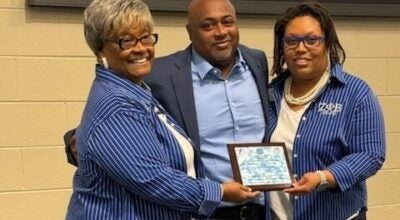Proposed amendment would clean-up state’s constitution
Published 9:19 am Thursday, August 20, 2020
|
Getting your Trinity Audio player ready...
|
With county elections not far behind and municipal elections still on the horizon, the general election in November will once again call voters out to cast ballots for a number of state and national candidates – in Alabama, voters will also weigh in on an amendment to clean up the state’s constitution, which is the longest in the world.
According to a press release from Alabama Citizens for Constitutional Reform (ACCR), the Alabama Legislature unanimously approved a proposal to give citizens the opportunity to vote on a constitutional reform amendment.
The amendment would allow the Legislative Services Agency (LSA), a non-partisan agency established to provide assistance to the Alabama Legislature, to work with Alabama Reference Services to propose a draft to “clean up and consolidate the document, putting it in a logical structure that is far more easily [understood] by all citizens of the state,” the press release stated.
According to advocates, the recompilation of the state’s constitution will also clarify for economic developers what is and is not allowed and ease the concerns of potential businesses by removing language that might discourage them from setting up shop in Alabama.
Along with providing a draft for a streamlined constitution, LSA’s work will include provisions for it to present a new document for ratification by Alabama voters in 2022.
According to the ACCR release, Alabama’s constitution “is packed full of 900 amendments and is riddled with redundancies creating a maze of words known to befuddle even legal scholars.”
“Alabamians are some of the most independent, authentic and opinionated people in America,” said Wayne Flynt, History Professor Emeritus at Auburn University and author and editor of “Encyclopedia of Alabama.” “Yet they have allowed the antiquated 1901 Constitution to transfer power to run their towns, cities and counties to a hundred-forty state legislators whose record on ethics and efficiency is less than brilliant. Unfortunately, this amendment is not an opportunity to rewrite that constitution, but it will make decisions and understanding easier. It will allow removal of duplication and words that are no longer legal.”
According to Cathy Randall, Director Emeritus of University of Alabama’s Catherine J. Randall Research Scholars Program and 2018 Yellowhammer Woman of Impact, the amendment has broad support.
“Amendment 4 is a non-partisan issue that brings support from many sectors of Alabama, from educators, religious leaders, business leaders and members of all political parties,” Randall said.
ACCR leaders, including Nancy Ekberg and Callie Greer of the Selma Center for Nonviolence, Truth and Reconciliation (SCNTR), pointed to a number of specific amendments, as well as a variety of other redundancies and inconsistencies, that should be addressed in the constitution.
“The legislative article says that the state shall not engage in works of internal improvement or lend money or credit to any private enterprise,” Ekberg said. “Well, of course we needed roads and bridges and docks and ports and airports, so constitutional amendments had to be passed to allow that to happen. This recompilation will clean up that mess.”
Among specific instances of redundancy in the document is Amendment 301, approved in 1969, which amended Amendment 195, passed in 1961, which amended Amendment 193, also passed in 1961, which amended Amendment 122, approved in 1957, which amended Amendment 100, passed in 1953, which amended Amendment 18, approved in 1924, which like the rest applies to ad valorem taxes in Mobile.
Other amendments still on the books allow Mobile County to control mosquitoes and rodents, allow Pickens County to dispose of solid waste, allow for control of the boll weevil, allows St. Clair County to collect a fee from out-of-state companies who dispose of solid waste in the county and more.
“But most awful is the Education Article that says white and black children cannot go to school together,” Ekberg said. “Those words need to be removed.”





